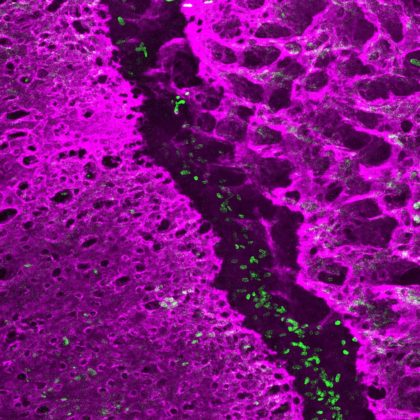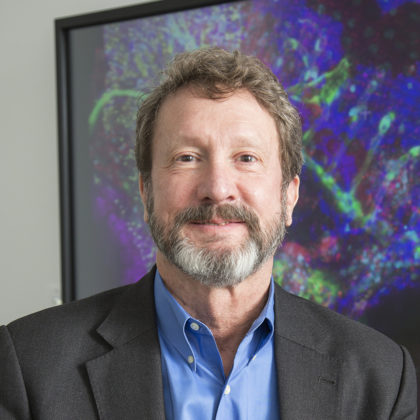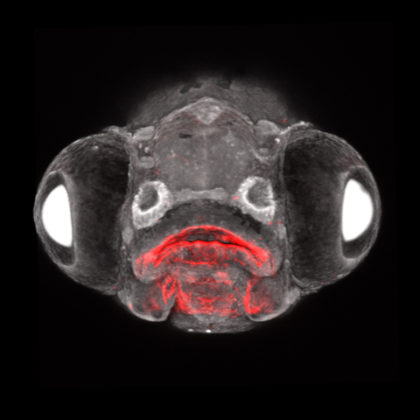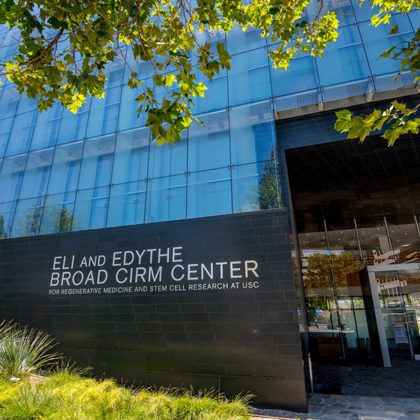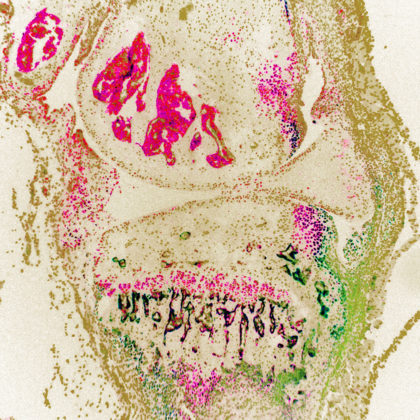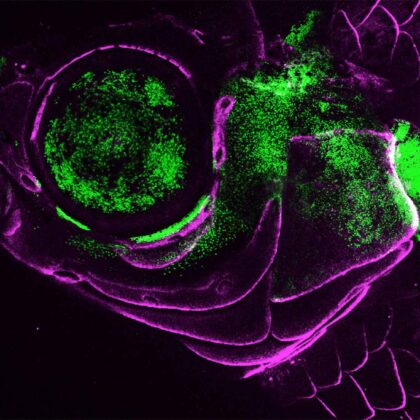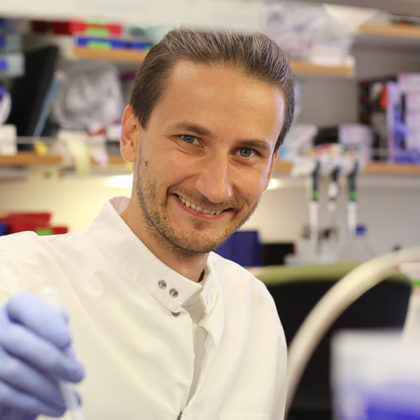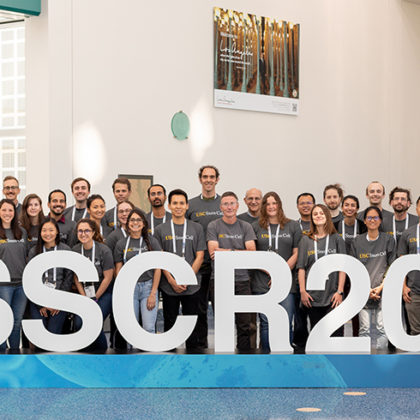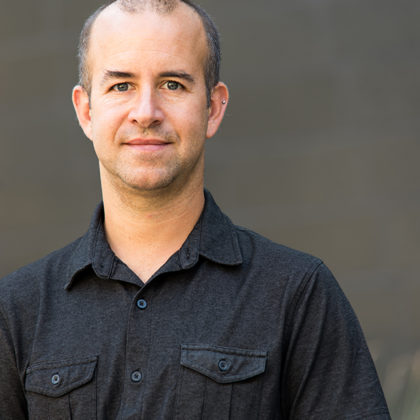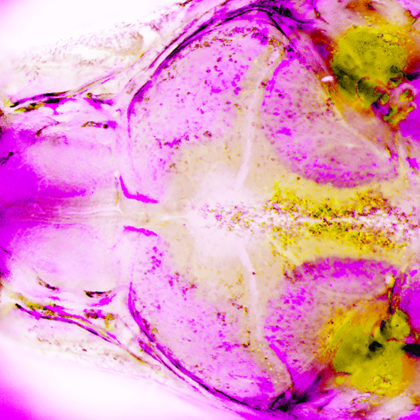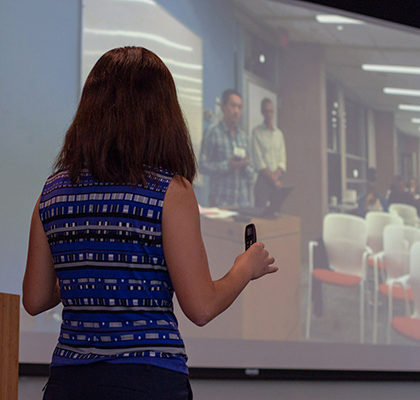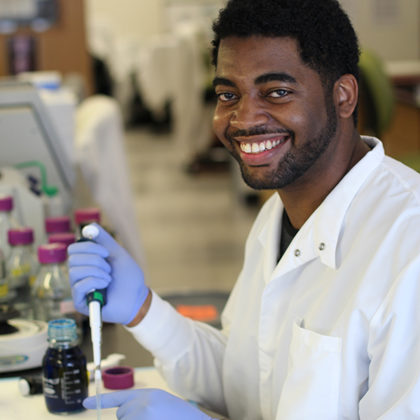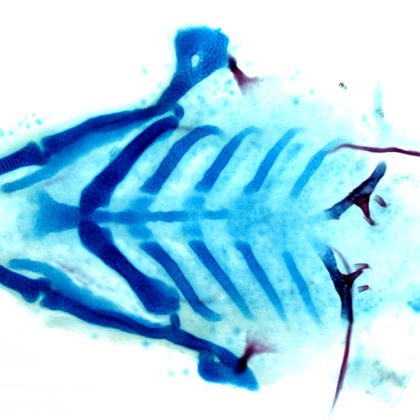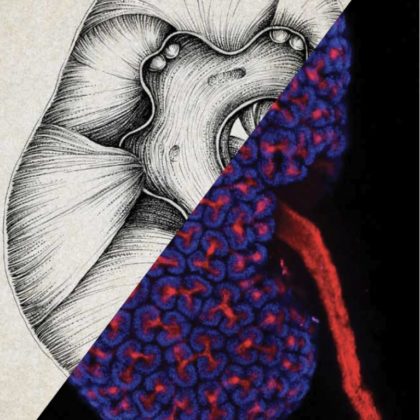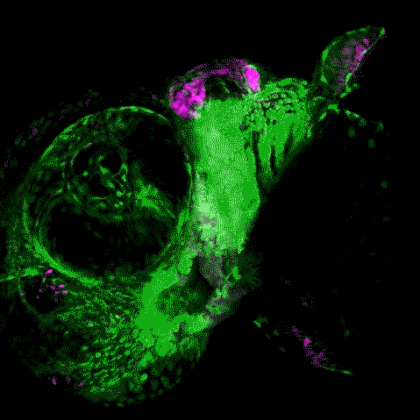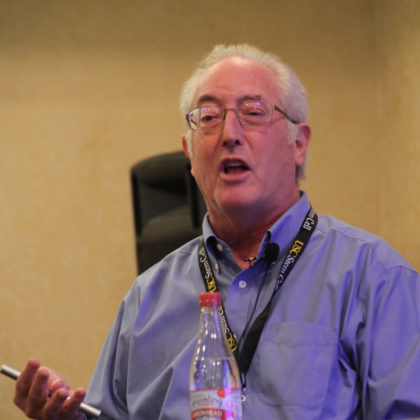Dr. Crump uses zebrafish to understand how the cartilages and bones of our faces are patterned during development. His lab is discovering the local tissue-tissue interactions that control skeletal differentiation and morphogenesis in vivo, and also exploring novel ways of regenerating bone in adults.
Stories
Study of skull birth defect takes it from the top
Contrary to the popular song, the neck bone is actually connected to one of 22 separate head bones that make up the human skull. These plate-like bones intersect at specialized joints called …
USC Professor Scott E. Fraser redefines impossible problems
USC Professor Scott E. Fraser is known for inventing new microscopes and other tools to observe living, developing embryos. But one of his lab’s most important pieces of technology filters coffee instead …
USC celebrates Robert E. Maxson’s lifetime of achievement and adventure
USC Emeritus Professor Robert E. Maxson has an understated explanation for why he’s flown so many planes, sailed so many boats, skied so many mountains, played so many guitars, taken so many …
Flaws emerge in modeling human genetic diseases in animals
My lab, based at the University of Southern California Keck School of Medicine, uses zebrafish to model human birth defects affecting the face. When I tell people this, they are often skeptical …
Pituitary puzzle gets a new piece, revising evolutionary history
Insights into century-old controversy about key gland’s development arise from research led by the Keck School of Medicine of USC A new USC-led study suggests a change to the developmental — and …
California’s biggest stem cell experiment: The impact of the stem cell ballot proposition at USC
In 2008, USC broke ground on an $80 million building dedicated solely to stem cell research and regenerative medicine. The plans called for a monolithic structure clad in black marble and reflective …
When it comes to arthritic bone spurs, stem cells hurt instead of heal
The same stem cells that heal broken bones can also generate arthritic bone spurs called osteophytes, according to a new study in the Annals of Rheumatic Diseases. “Although these stem and progenitor …
USC-led study traces the evolution of gill covers
The emergence of jaws in primitive fish allowed vertebrates to become top predators. What is less appreciated is another evolutionary innovation that may have been just as important for the success of …
USC Stem Cell scientist Peter Fabian wins NIH Pathway to Independence Award
As a postdoctoral fellow in the Department of Stem Cell Biology and Regenerative Medicine at USC, Peter Fabian has proven himself to be a big fish in the pool of aspiring faculty …
Manuscript writing course for KSOM students and postdocs
Are you a KSOM postdoc or graduate student working on a manuscript? Whether you’re staring at a blank page, or going through the umpteenth round of revisions, this free workshop will get …
USC brings the world’s largest stem cell conference to Los Angeles
For the first time ever, the City of Los Angeles hosted the world’s largest stem cell conference. By choosing Los Angeles as the host city for this major annual meeting, the International …
USC Stem Cell scientist Gage Crump gives a bare bones explanation of eLife skeletal development study
How do our skeletons form during embryonic development? To approach this question, PhD student Dion Giovannone, research scientist Sandeep Paul and the USC Stem Cell laboratory of Gage Crump looked to our …
Zebrafish make waves in our understanding of a common craniofacial birth defect
Children are not as hard-headed as adults—in a very literal sense. Babies are born with soft spots and flexible joints called sutures at the junctions where various sections of their skull bones …
USC Stem Cell and BCRegMed Virtual Symposium brings Canada to California
It didn’t require plane tickets to bring together scientists from USC Stem Cell in Los Angeles and BCRegMed in Vancouver. During October’s Virtual Symposium, videoconferencing technology enabled these scientists to share ideas …
USC Stem Cell scientist D’Juan Famer named Howard Hughes Medical Institute Hanna H. Gray Fellow
A little over a year after arriving at USC, D’Juan Farmer has been awarded one of the most prestigious fellowships available to postdoctoral fellows. The Howard Hughes Medical Institute (HHMI) Hanna H. …
At the retreat for USC’s stem cell department, the students become the masters
Students and trainees took center stage at the annual retreat for USC’s Department of Stem Cell Biology and Regenerative Medicine. They presented their latest research to the 180 stem cell scientists who …
A Fox code for the face
In the developing face, how do stem cells know whether to become cartilage, bones or teeth? To begin to answer this question, scientists from the USC Stem Cell laboratory of Gage Crump …
Growing hope: New organs? Not yet, but stem cell research is getting closer
If you lose a limb, it’s lost for life. If you damage a kidney, you won’t grow a new one. And if you have a heart attack, the scars are there to …
USC Stem Cell scientists chew on the mysteries of jaw development
Scientists in the USC Stem Cell laboratory of Gage Crump have revealed how key genes guide the development of the jaw in zebrafish. These findings may offer clues for understanding craniofacial anomalies …
Scientists get into detail at the retreat for USC’s stem cell department
“The process of disease is about detail,” said Larry Goldstein, the director of the stem cell program at the University of California, San Diego, and keynote speaker at the retreat for USC’s …

